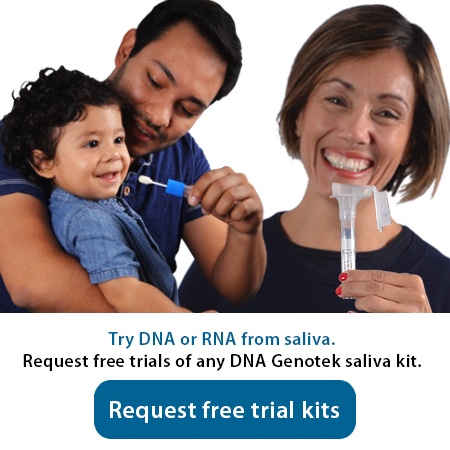2014-12-22
The DNA Genotek Helping Hands Program is designed to assist organizations that are innovators in disease research, disease prevention and treatment. The goal of the program is to help accelerate research and to advance the fight against disease across the globe.
Earlier this year we spoke with Dr. Millan Patel from the Department of Medical Genetics at the University of British Columbia. We learned about his passion for supporting rare disease research and the Microgrant Program that he created with the Rare Disease Foundation and BC Children’s Hospital Foundation (BCCHF). We were keen to discuss how we might support this initiative in some small way.
We have many customers who are conducting rare disease research and recognize the importance of their findings in profoundly impacting diagnosis, treatment and care for families who are seeking answers to a unique health condition impacting their family. Many times samples must be collected from the impacted patient and their parents to help pin point the rare condition. Our Oragene saliva collection kits are often used as they offer a painless, easy and reliable way to collect from patients and family members either in clinic or via the mail.
We worked with Dr. Patel to determine how we could support his initiative and the important research that the grant applicants would be undertaking. As a result we are happy to provide complimentary Oragene•DISCOVER DNA self-collection kits to grant recipients and this year, will also be offering a trio whole exome sequence.
The following is an excerpt from the Rare Disease Foundation website.
Rare or 'orphan' diseases include nearly 7000 disorders and affect 2-3 million Canadians. For children with rare diseases, standard medical approaches often do not meet their needs, necessitating further research. However, research precedent often does not exist for rare diseases and never exists for uncharacterized diseases. Thus, the traditional research funding paradigm, which requires precedent and evidence of prior funding in an area of expertise, is unsuitable to fund research into rare or uncharacterized diseases.
The Rare Disease Foundation has recognized this problem and identified a new model for improving care of patients with rare disorders. For patients with rare conditions, research IS care. To this end, the Rare Disease Foundation, in collaboration with BCCHF, provides microgrants to expedite exploration of new ideas for understanding rare diseases and improving patient care.
PROJECT CRITERIA:
- involve a rare disease or rare subtype of disease (lifetime prevalence < 1 in 2000)
- directly impact patient care for one or more patients
- scientifically valid and feasible
- ethics approval (microgrant activation requires an ethics approval certificate, where applicable)
While the current cycle of funding recently closed, the Foundation expects to run an additional cycle of funding in May, 2015.
Best of luck to all microgrant applicants! We congratulate the Rare Disease Foundation for their programs to generate ongoing support for researchers focused on such an important area of discovery. For more information visit the Foundation website at http://www.rarediseasefoundation.org/grants


